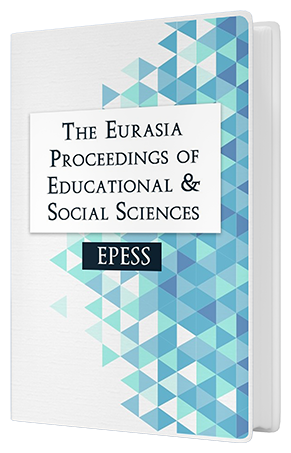A Cross-Linguistic Analysis of Presupposition in “The Murder of Roger Ackroyd” and Its Variant in Albanian Language
DOI:
https://doi.org/10.55549/epess.1351957Keywords:
Cross-linguistic, Presupposition, Qualitative, Comparative, TranslationAbstract
The aim of this paper is to provide a cross-linguistic comparative approach on the use of presupposition in literature. The term presupposition refers to those assumptions which appear to be built into the linguistic structure of texts and which relate linguistic structure to extra-linguistic context in terms of the inferences which are expected to be made about this context (Levinson 1983). Presupposition has long been considered a property of language to frame readers into a particular interpretation or ideology, based on clues or triggers. The role of the reader is thus crucial in interpreting the clues derived from presupposition triggers and make connections among different parts of text as well as revealing facts about characters and their attitude. Our case study will be based on the novel “The Murder of Roger Ackroyd” by Agatha Christie and its Albanian variant. We are going to provide a qualitative analysis of presuppositions in the novel from a comparative perspective, taking examples from the original novel and its translation in Albanian. Our comparative analysis has shown that Agatha Christie relies heavily on the use of presupposition, being a result of the genre of the detective novel. The examples are grouped according to the types of presupposition that have been observed in the original on both lexical and syntactic level. Comments follow on the way they have been translated into Albanian and the fact whether the same construction occurs in Albanian. The paper ends with conclusions that relate to the corpus of study and the process of translation of presupposition at large.Downloads
Published
Issue
Section
License
Copyright (c) 2023 The Eurasia Proceedings of Educational and Social Sciences

This work is licensed under a Creative Commons Attribution-NonCommercial-ShareAlike 4.0 International License.
The articles may be used for research, teaching, and private study purposes. Any substantial or systematic reproduction, redistribution, reselling, loan, sub-licensing, systematic supply, or distribution in any form to anyone is expressly forbidden. Authors alone are responsible for the contents of their articles. The journal owns the copyright of the articles. The publisher shall not be liable for any loss, actions, claims, proceedings, demand, or costs or damages whatsoever or howsoever caused arising directly or indirectly in connection with or arising out of the use of the research material. All authors are requested to disclose any actual or potential conflict of interest including any financial, personal or other relationships with other people or organizations regarding the submitted work.




